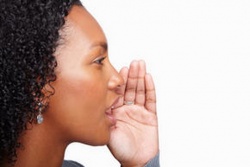Oral tradition
Oral tradition and oral lore is cultural material and tradition transmitted orally from one generation to another.
The messages or testimony are verbally transmitted in speech or song and may take the form, for example, of folktales, sayings, ballads, songs, or chants.
In this way, it is possible for a society to transmit oral history, oral literature, oral law and other knowledges across generations without a writing system.
A narrower definition of oral tradition is sometimes appropriate.
Sociologists might also emphasize a requirement that the material is held in common by a group of people, over several generations, and might distinguish oral tradition from testimony or oral history.
In a general sense, "oral tradition" refers to the transmission of cultural material through vocal utterance, and was long held to be a key descriptor of folklore (a criterion no longer rigidly held by all folklorists).
As an academic discipline, it refers both to a set of objects of study and a method by which they are studied the method may be called variously "oral traditional theory", "the theory of Oral-Formulaic Composition" and the "Parry-Lord theory" (after two of its founders; see below)
The study of oral tradition is distinct from the academic discipline of oral history, which is the recording of personal memories and histories of those who experienced historical eras or events.
It is also distinct from the study of orality, which can be defined as thought and its verbal expression in societies where the technologies of literacy (especially writing and print) are unfamiliar to most of the population.
